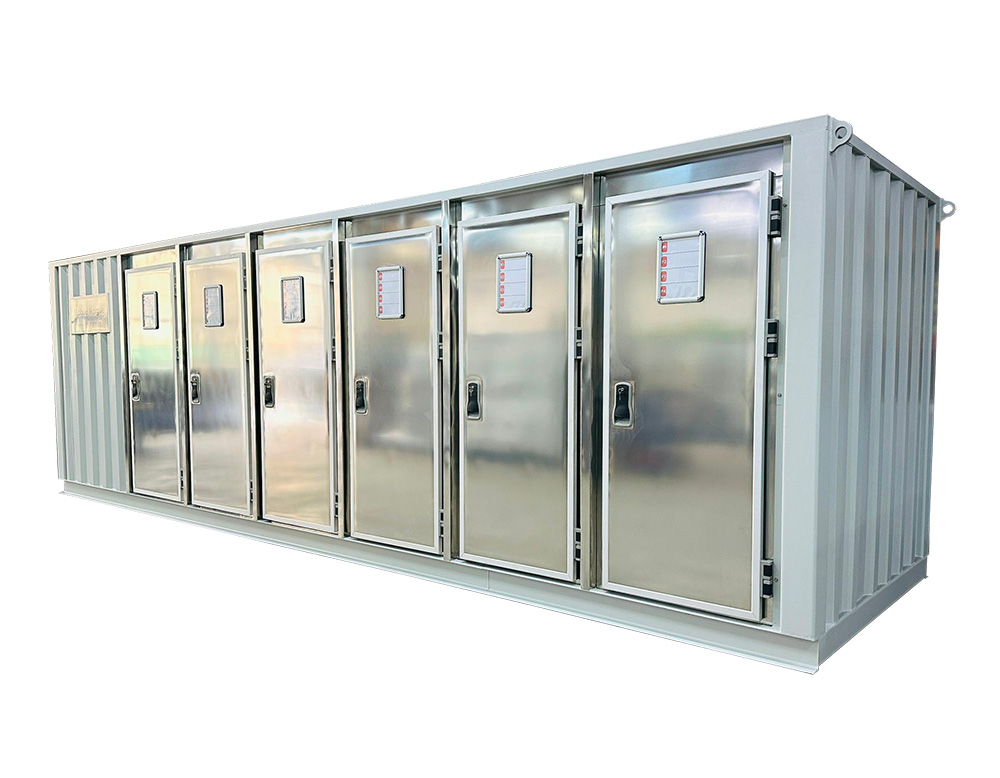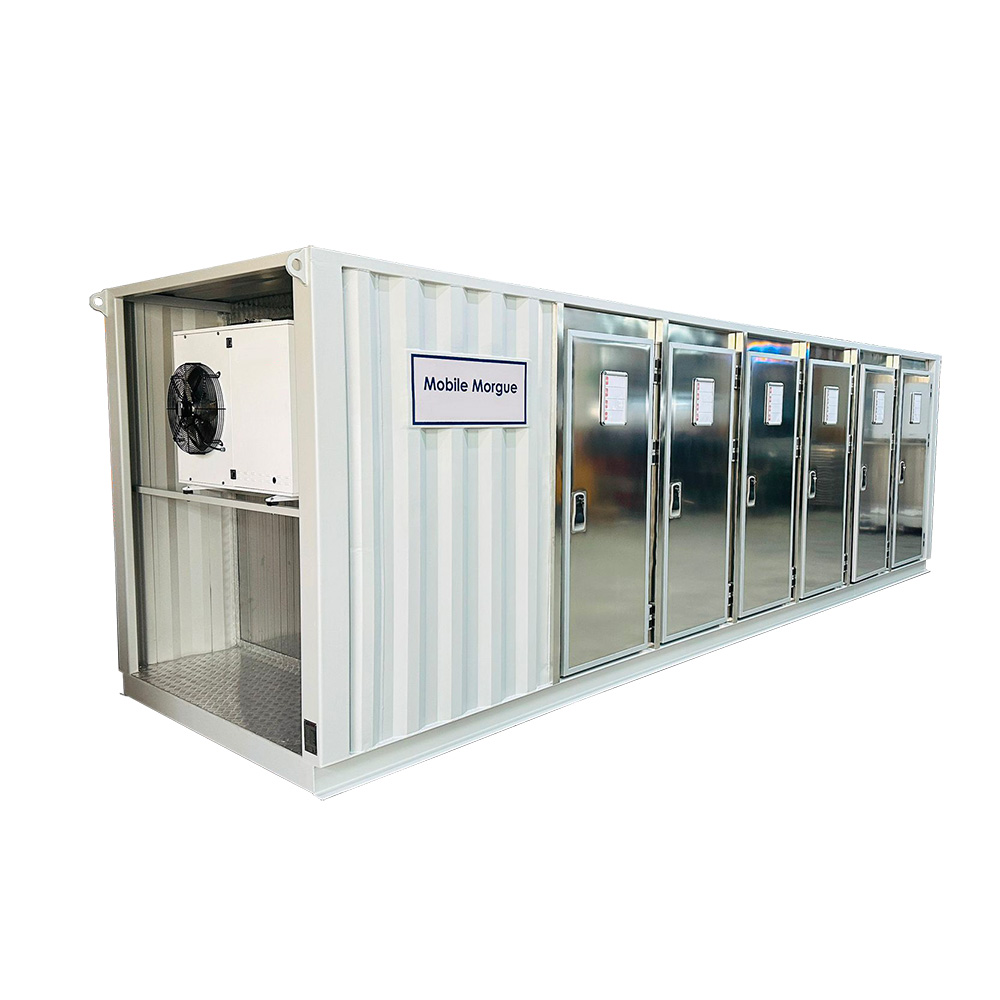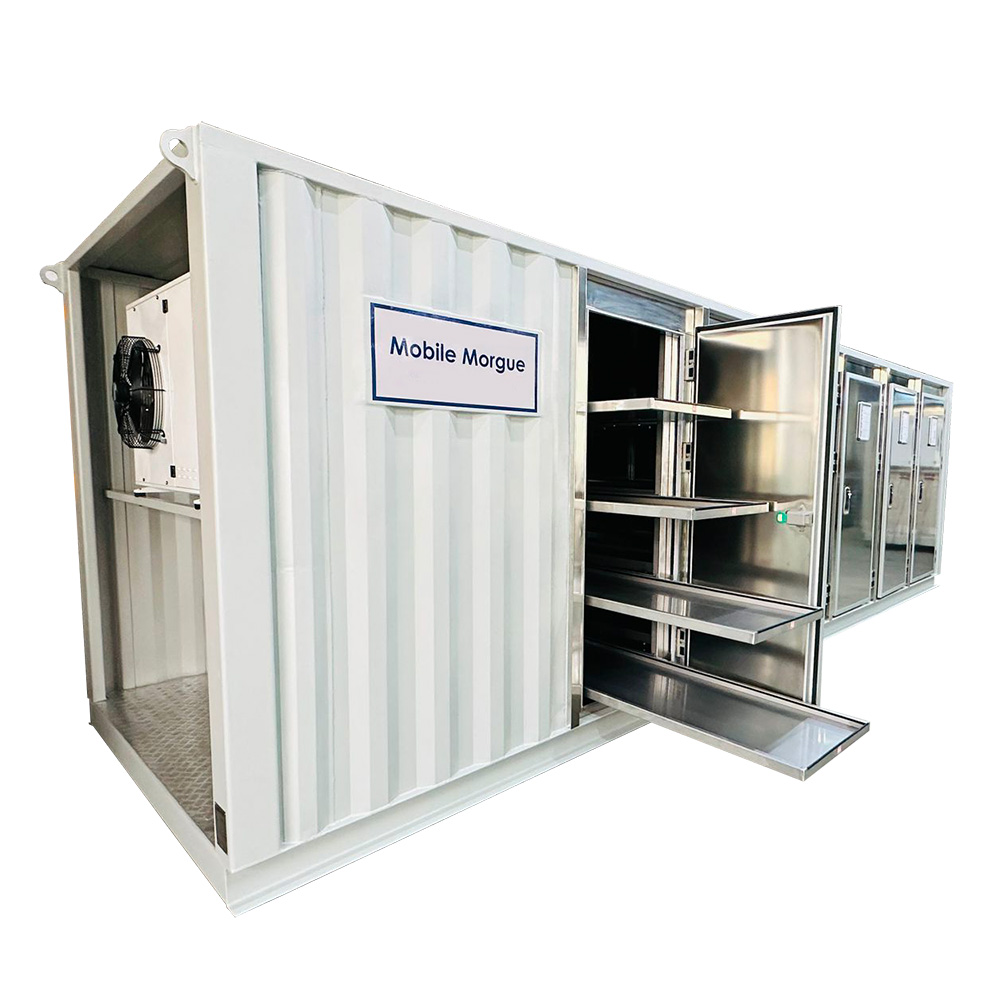Morgue Container
What are the benefits of Morgue Container?
Understanding Morgue Containers: Function, Design, and Importance
Morgue containers are essential for the temporary storage and transportation of deceased individuals in hospitals, disaster areas, military settings, and remote areas. These containers provide a safe, hygienic, and temperature-controlled environment, ensuring the preservation of bodies until appropriate arrangements can be made.
What is a Morgue Container?
A morgue container is a specialized refrigerated unit designed to store human remains at low temperatures. These containers are typically used in hospitals, forensic facilities, disaster response operations, military bases, and remote locations where conventional morgue facilities may be unavailable or insufficient.
Key Functions of Morgue Containers
Preservation – Refrigeration slows down decomposition, allowing time for forensic investigations, burial preparations, and transportation.
Sanitation – Proper sealing prevents contamination and odors, ensuring a hygienic environment.
Storage Capacity – Containers come in various sizes, with multiple compartments for organized body storage.
Mobility – Many morgue containers are transportable and can be deployed in emergency or remote settings.

Types of Morgue Containers
1. Refrigerated Morgue Containers
These are temperature-controlled containers designed for short-term or long-term storage.
Common in hospitals, disaster response teams, and forensic facilities.
Typically maintain temperatures between -5°C to 5°C (23°F to 41°F).
2. Portable/Mobile Morgue Containers
Used in disaster zones, war zones, or mass casualty events.
Equipped with wheels, insulation, and modular storage racks.
Can be deployed quickly in emergencies.
3. Custom Morgue Containers
Designed based on specific needs, such as high-capacity storage or extra security features.
May include solar-powered cooling systems for remote areas.
4. Mass Fatality Morgue Containers
Used when traditional morgues are overwhelmed due to pandemics, natural disasters, or war.
Can hold dozens to hundreds of bodies, depending on size and shelving arrangements.
Key Features and Design of Morgue Containers
1. Temperature Control
Most morgue containers are equipped with refrigeration units to maintain low temperatures for preservation.
Some advanced models use cryogenic or deep-freeze technology for longer storage durations.
2. Material and Build
Constructed from stainless steel or insulated aluminum for durability and easy sanitation.
Interiors have adjustable shelving systems to maximize storage capacity.
3. Sanitation and Odor Control
Sealed to prevent leaks, contamination, and odor release.
Equipped with drainage systems for easy cleaning.
4. Portability and Deployment
Many units are designed for quick transportation and easy assembly in emergency situations.
Some morgue containers have wheels or are built into trailers for mobility.
5. Security and Identification
Lockable doors to prevent unauthorized access.
Labeling systems for efficient body identification in mass casualty events.


Where Are Morgue Containers Used?
Hospitals and Mortuaries – For overflow storage when traditional morgues reach capacity.
Disaster Response – Used by FEMA, Red Cross, and other agencies during hurricanes, earthquakes, or pandemics.
Military and War Zones – To store casualties before transport or burial.
Airports and Border Facilities – For handling human remains in transit.
Remote Locations – Deployed in research stations, offshore facilities, and remote forensic sites.
Why Morgue Containers Are Essential
Emergency Preparedness – During mass casualty events, morgue containers provide a scalable solution.
Public Health and Safety – Prevents the spread of disease and maintains sanitary conditions.
Legal and Forensic Investigations – Ensures proper handling for autopsies and legal inquiries.
Respect for the Deceased – Provides a dignified and organized approach to body storage.
Morgue containers play a crucial role in medical, forensic, and emergency response fields. Their ability to store, preserve, and transport deceased individuals under controlled conditions makes them indispensable in crisis situations. Whether used in hospitals, disaster sites, or military operations, these units ensure efficiency, hygiene, and respect in handling human remains.
With advancements in modular design, temperature control, and portability, morgue containers continue to evolve, providing better solutions for temporary mortuary storage worldwide.


